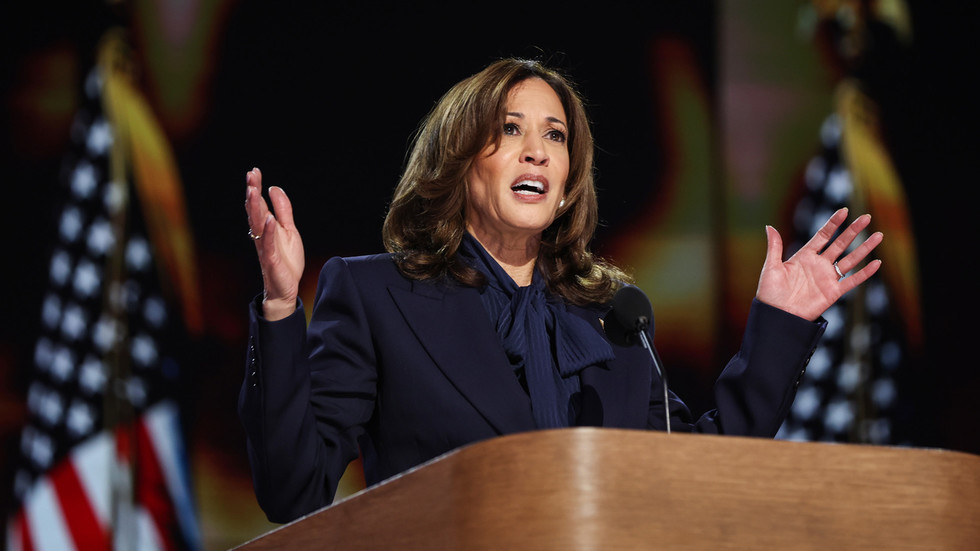The recent campaign advertisement released by US Democratic presidential candidate Kamala Harris has triggered significant backlash online, particularly among black male voters. The ad, which was disseminated via platforms like Instagram and Snapchat, aims to resonate with younger audiences by employing a modern, dating-game-style format. In the commercial, a black male character interacts with a group of women who assess his desirability based on superficial metrics such as income, height, and workout habits. Although the women seem to approve of him, the pivotal moment occurs when he reveals that he has no intention to vote in the upcoming presidential election. The women’s reaction, which involves popping balloons, is followed by a call to action prompting viewers to vote on Election Day, Nov 5. However, the approach taken in the ad has drawn severe criticism, with many users branding it as dehumanizing and disrespectful.
Critics have called out the ad for its failure to achieve its intended goal of winning over black male voters, arguing instead that it reinforces negative stereotypes and diminishes their humanity. Social media commentators voiced their frustrations, asserting that such marketing tactics only serve to insult and shame black men, rather than engaging them in a respectful dialogue about voting. One user relayed their disbelief that Harris’s campaign believed this approach would be effective, highlighting the disconnect between the intent behind the ad and its actual reception. Mockery surrounded the ad, with some users describing it as “cringe-worthy,” while questioning the likelihood that any man would feel encouraged to vote for Harris based on the depiction presented in the advertisement.
This controversy arises in the context of a challenging race for Harris, particularly as she lags behind Republican rival Donald Trump in securing support from male voters. A report from The New York Times indicates Harris is trailing by 11 points in efforts to engage this demographic, raising alarms within her campaign about how to effectively appeal to them. As the election date looms closer, it becomes increasingly crucial for her to address this gap in support, especially in light of the heightened interest in mobilizing young voters. The online backlash could further complicate her campaign’s efforts to foster enthusiasm among this crucial sector of the electorate.
Further complicating the dynamics of the race, former US President Barack Obama recently entered the fray, campaigning for Harris in Pennsylvania. During a rally in Pittsburgh, he expressed disappointment in the enthusiasm of black male voters, urging them to exhibit the same fervor for Harris that they once held for his campaigns in 2008 and 2012. Obama’s comments underscore the pressure on Harris to connect with voters who may feel marginalized or disengaged, emphasizing the ongoing challenge that Democrats face in courting black male support. The pressure is mounting as the campaign attempts to address these issues ahead of the presidential election.
Amid this contentious atmosphere, both Harris and Trump have turned to celebrity endorsements to boost their campaigns. Notable figures supporting Harris include renowned musicians such as Taylor Swift, Billie Eilish, and Bruce Springsteen, alongside Hollywood actors like George Clooney and Jennifer Lawrence. Conversely, Trump has attracted endorsements from a variety of personalities, including CEO Elon Musk and rapper 50 Cent, thus showing an array of celebrity influences at play in this election cycle. The power of celebrity endorsement in shaping public opinion and voter mobilization remains a significant factor, adding layers to the electoral landscape and shaping how candidates communicate their messages to various demographics.
In conclusion, Kamala Harris’s latest advertisement aimed at engaging black male voters has sparked considerable controversy and criticism online, raising questions about the efficacy of using dehumanizing tactics in political campaigns. As her campaign grapples with the challenge of resonating effectively with this demographic, the involvement of influential figures, along with the shifting sentiments of voters, presents an intricate web of determinants that could influence the outcome of the election. Ultimately, how Harris navigates the landscape of voter engagement in the coming weeks will be pivotal, as the ad’s reception highlights the delicate balance required in appealing to diverse electorates within a politically charged environment.

